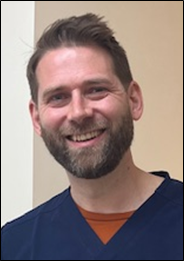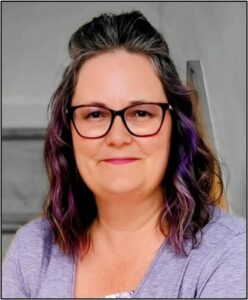More than 240 GPs join NHS in North East and Yorkshire as health service drives to improve access
As latest figures for England show around 3 in 4 patients find it easy to contact a GP – up more than 10% since last summer, a West Yorkshire GP has explained how the availability of online appointment booking, in addition to his practice’s switchboard, has improved access and equality of service for patients.
Dr Stephan Claridge (pictured right) said his practice at Lingwell Croft Surgery in Leeds receives an average of 350 consultations a day from its 16,000 patient list.
 “Generally, younger patients are happier to use online consultations, while older patients tend to prefer phoning as they can leave immediate voicemails which are transcribed using voice recognition technology into the online consultation triage system,” Dr Claridge said.
“Generally, younger patients are happier to use online consultations, while older patients tend to prefer phoning as they can leave immediate voicemails which are transcribed using voice recognition technology into the online consultation triage system,” Dr Claridge said.
Almost every (99%) GP practice in England now has a digital telephone system to make it easier for people to get through to their practice team. Office for National Statistics (ONS) figures show 72.9% of people said it was ‘easy’ or ‘very easy’ to contact their GP in the North East and Yorkshire region, compared to 62% in July last year.
Dr Claridge added: “Safety is a massive thing for me. I was an A&E trainee before going into general practice and the triage system that seemed to work most effectively is the most experienced clinician at the front door.
“The doctor picks up the e-consultations of a clinical nature, that the receptionist can’t triage – so I think it’s improved access and equality of service to patients and it’s a simpler and streamlined process.”
In a further boost to increasing patients’ access to NHS healthcare, more than 240 GPs have joined the NHS in the North East and Yorkshire region since last October through the Additional Roles Reimbursement Scheme (ARRS).
Supported by £82 million of Government funding, the national scheme has been introduced to improve patients’ access to general practice. It enables primary care networks to claim reimbursement for the salaries of newly qualified GPs, and across England, 1,000 GPs have been recruited through the scheme.
The recruitment boost has been welcomed by senior healthcare professionals who say more people in the North East and Yorkshire will be able to receive timely care in the community.
Dr Natalie Jones is Allied Health Professional Clinical Manager at Primary Care Sheffield and previously Additional Roles Reimbursement Scheme Project Manager for South Yorkshire.
 Dr Jones (pictured left) said: “Each primary care network decides what roles they want and tailors the needs of the population to the available roles. For example, in some areas with a high prevalence of diabetes they might look to employ a dietitian. In other areas, where there are a lot of older, frail people, a paramedic or occupational therapist might be a good addition to the team. Lots of areas are also looking to employ care coordinators, health coaches and their supporting roles.”
Dr Jones (pictured left) said: “Each primary care network decides what roles they want and tailors the needs of the population to the available roles. For example, in some areas with a high prevalence of diabetes they might look to employ a dietitian. In other areas, where there are a lot of older, frail people, a paramedic or occupational therapist might be a good addition to the team. Lots of areas are also looking to employ care coordinators, health coaches and their supporting roles.”
Dr Jones has researched the patient experience of the Additional Roles Reimbursement Scheme and says several themes emerged.
“Patients talked about staff members’ professionalism and knowledge – of local communities and access to services – and their ability to signpost and advocate for patients, particularly those of non-English speaking or ethnic minority backgrounds,” she said.
Through the ARSS scheme, primary care networks (PCNs) can also recruit for 17 other roles within their multidisciplinary teams – including social prescribers, dietitians and clinical pharmacists – to meet the needs of their local populations. As well as GPs, nurses were added to the scheme earlier in the year to give PCNs even more flexibility.
